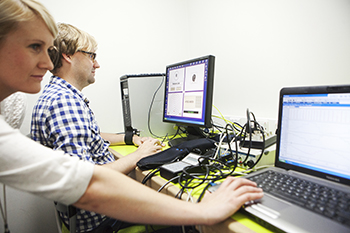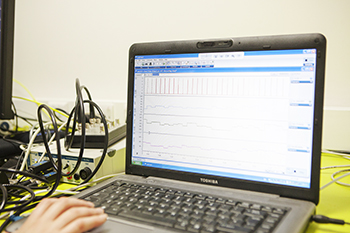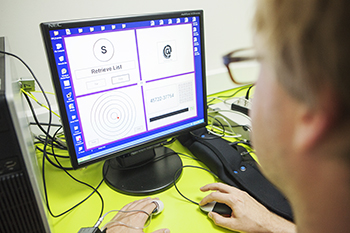-
Study
Study
Interested in studying at Northumbria? With 31,500 students, Northumbria is one of the largest universities in the country, offering courses on either a full-time, part-time or distance learning basis.
Discover more-
Undergraduate
- Undergraduate Study Degree
- Undergraduate Open Day & Events
- Application Guides
- Northumbria University UCAS Exhibitions
- Foundation Years
- Undergraduate Fees & Funding
- School & College Outreach
- Continuing Professional Development
-
Postgraduate
- Postgraduate Study Degree
- Postgraduate Research Degrees
- Postgraduate Open Days and Events
- Postgraduate Fees & Funding
- Flexible Learning
- Thinking about a Masters?
- Continuing Professional Development
- Change Direction
-
Student Life
- The Hub - Student Blog
- Accommodation
- Life in Newcastle
- Support for Students
- Careers
- Information for Parents
- Students' Union
- Northumbria Sport
-
-
International
International
Northumbria’s global footprint touches every continent across the world, through our global partnerships across 17 institutions in 10 countries, to our 277,000 strong alumni community and 150 recruitment partners – we prepare our students for the challenges of tomorrow. Discover more about how to join Northumbria’s global family or our partnerships.
Discover more-
Applying to Northumbria
- European Union
- Our London Campus
- Northumbria Pathway
- International Events
- Entry Requirements
- Agent Network
-
Northumbria Language Centre
- Faculty Requirements
- Acceptable English Requirements
- Pre-Sessional English and Study Skills
- Academic Language Skills Programmes (ALS)
-
International Fees, Funding & Scholarships
- International Undergraduate Fees
- International Undergraduate Funding
- International Masters Fees
- International Masters Funding
- International Postgraduate Research Fees
- International Postgraduate Research Funding
- International Money Matters
-
Life at Northumbria
- International student support
- The Hub - Student Blog
- Careers
-
International Mobility
- Current Northumbria Students
- Incoming Exchange Students
-
-
Business
Business
The world is changing faster than ever before. The future is there to be won by organisations who find ways to turn today's possibilities into tomorrows competitive edge. In a connected world, collaboration can be the key to success.
Discover more -
Research
Research
Northumbria is a research-rich, business-focused, professional university with a global reputation for academic quality. We conduct ground-breaking research that is responsive to the science & technology, health & well being, economic and social and arts & cultural needs for the communities
Discover more -
About Us
-
About Northumbria
- Our Strategy
- Our Staff
- Our Partners
- Student Profiles
- Alumni Profiles
- Leadership & Governance
- Academic Departments
- University Services
- History of Northumbria
- Contact us
- Online Shop
-
-
Alumni
Alumni
Northumbria University is renowned for the calibre of its business-ready graduates. Our alumni network has over 236,000 graduates based in 178 countries worldwide in a range of sectors, our alumni are making a real impact on the world.
Discover more - Work For Us
What will I learn on this module?
You will learn how a full systems approach (i.e. from macro influencers such as governments and organisations such as the World Health Organisation through to micro influencers such as individuals’ attitudes and beliefs about their health) can help us understand, and evaluate why differences exist in healthcare practice and policy. You will explore how the concepts of health, illness, sickness and disease are constructed, measured and managed across a range of real world contexts and how decisions made at differing system levels can shape the health and wellbeing of the individual. Topics include:
How diseases, disorders and conditions are defined and prioritised
The descriptive and statistical analysis of health behaviours and disease trends
How health promotion campaigns are created, managed and evaluated under the framework of public health
The impact of family and peers on health behaviours and disease management
The role of individual differences in healthcare encounters and the impact of those encounters on health outcomes
How will I learn on this module?
You will participate in interactive lectures designed to provide an overview of the concepts, theories and models at each system level.
Additionally, the key concepts, outlined in each lecture, will be exemplified through an in-depth examination of a specific illness, disease or
health behaviour, using up-to date examples from the literature and from current practice (e.g. comparison of health promotion campaigns in
the UK and USA to prevent texting whilst driving). Independent study will give you further opportunity to enhance your skills in critical analysis
and explore key theoretical underpinnings and practical contexts relating to both theory and practice.
How will I be supported academically on this module?
You will be supported through in-class feedback from tutors and peers. Resources will also be available via the e-learning portal, including
lecture slides and related supplementary materials, recommended readings and useful glossaries and governmental/organisational reports.
Discussion boards will support you to critically explore the key concepts as a group.
What will I be expected to read on this module?
All modules at Northumbria include a range of reading materials that students are expected to engage with. The reading list for this module can be found at: http://readinglists.northumbria.ac.uk
(Reading List service online guide for academic staff this containing contact details for the Reading List team – http://library.northumbria.ac.uk/readinglists)
What will I be expected to achieve?
Knowledge & Understanding:
1. You will be expected to be able to critically
evaluate the systems approach in the
context of health behaviours and disease
progression
2. You will be expected to demonstrate a
critical understanding of how 'caseness' is
defined at macro through to micro levels
and how differences in definition relate to
health-care prioritisation, provision, and
uptake
3. You will be expected to demonstrate a
systematic understanding of how illness
representations are created and managed
at one system level and how these relate to
health care policy and practice
Intellectual / Professional skills & abilities
1. You will be expected to be able to both
interpret and apply advanced
epidemiological research methods,
including associated statistical techniques,
which are relevant to the practice of a
Health Psychologist
Personal Value Attributes
1. You will be expected to be able to look
beyond traditional systems models of
health and illness and provide an
alternative viewpoint drawn from a variety of disciplines
How will I be assessed?
Summative assessment:
The module assessment will comprise one submission with two parts:
You will respond to a commissioning brief, from a Local Authority, and create a health promotion campaign that addresses one of their strategic priorities. Additionally, you will write an accompanying needs assessment and outcome analysis (1,000 words) to add clarity for the choices made in terms of the health promotion campaign and how the campaign fits within the current social-ecological model of health and disease.
Combined, the assessment assesses all the MLOs (KU1, KU2, KU5, IPSA4 and PVA2). As such, both parts must be completed to gain a mark.
Feedback will be given through in-script comments on the online submission, responses via the marking rubric and summary feedback addressing their assignment as a whole. Additionally, a summary of the average marks with more generic feedback drawn from the cohort will be distributed via the e-learning portal.
Pre-requisite(s)
N/A
Co-requisite(s)
N/A
Module abstract
The aim of this module is to provide you with a thorough understanding of how differing health and illness states are defined, measured, and
prioritised at various systems levels (e.g. government bodies, the hospital, the GP surgery, family and peers) and how decisions made at
each level can impact on your health and wellbeing. Using examples from the research literature, government reports and from in-class
discussion and debate you will examine questions like: Why are the prevalence rates of HIV so different between the UK and China? Who
creates a health policy and why? Should marijuana be legalised for medical use? Are soap operas better than adverts for delivering health
messages? All topics will be taught using interactive lectures using contemporary research findings but rely on critical thinking and debate.
Course info
Credits 20
Level of Study Postgraduate
Mode of Study 12 months full-time
1 other options available
Department Psychology
Location City Campus, Northumbria University
City Newcastle
Start September 2024
All information is accurate at the time of sharing.
Full time Courses are primarily delivered via on-campus face to face learning but could include elements of online learning. Most courses run as planned and as promoted on our website and via our marketing materials, but if there are any substantial changes (as determined by the Competition and Markets Authority) to a course or there is the potential that course may be withdrawn, we will notify all affected applicants as soon as possible with advice and guidance regarding their options. It is also important to be aware that optional modules listed on course pages may be subject to change depending on uptake numbers each year.
Contact time is subject to increase or decrease in line with possible restrictions imposed by the government or the University in the interest of maintaining the health and safety and wellbeing of students, staff, and visitors if this is deemed necessary in future.
Your Learning Experience
Find out about our distinctive approach at
www.northumbria.ac.uk/exp
Admissions Terms and Conditions
northumbria.ac.uk/terms
Fees and Funding
northumbria.ac.uk/fees
Admissions Policy
northumbria.ac.uk/adpolicy
Admissions Complaints Policy
northumbria.ac.uk/complaints

















